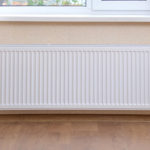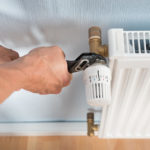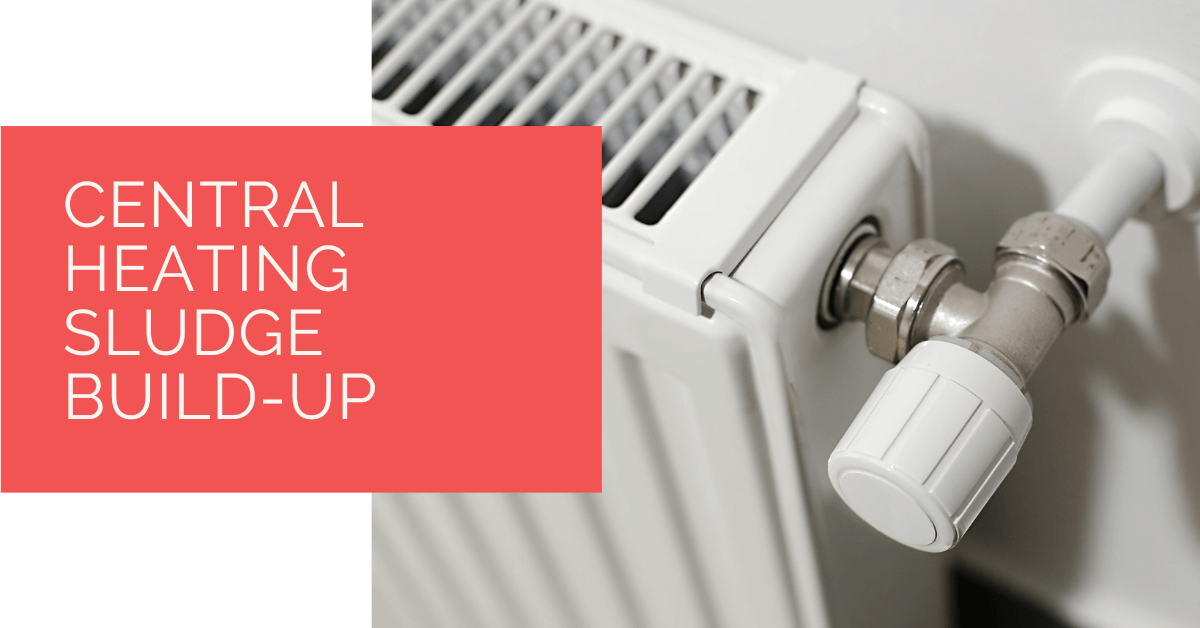Have difficulties with the central heating and can’t figure out what’s wrong? Sludge in the radiator might be the explanation. It can create a slew of problems that considerably impair the functioning of radiators.
The worst part? It isn’t always evident that sludge is the culprit.
A boiler build-up can arise for various reasons; it’s a prevalent issue in houses of all configurations. If you suspect the heating system has a sludge issue, here is some advice to follow and conquer the problem.
Contents
- 1 Key Takeaways
- 2 What exactly is Radiator Sludge?
- 3 Sludge has the potential to damage the entire system
- 4 How to know if the radiator has sludge?
- 5 How to test sludge build-up?
- 6 Keeping Heating Sludge at Bay
- 7 Is it necessary to clean out the sludge before installing a new radiator?
- 8 How to fix the radiator sludge issue?
- 9 The consequences of neglecting the issue
- 10 Don’t forget to schedule radiator service
- 11 Heat Pump Source: Reliable Heating and Cooling Solutions
- 12 Conclusion
- 13 FAQs
Key Takeaways
- Radiator sludge is a common issue that can lead to heating system problems, including uneven heat distribution and damage to essential components like the boiler’s heat exchanger.
- Indicators of radiator sludge build-up include reduced efficiency, strange noises from the boiler, constant deterioration, and frequent radiator bleeding, among others.
- To address radiator sludge, options include manual flushing of radiators, professional power flushing, or replacing radiators with modern, sludge-free models, with regular radiator maintenance recommended to prevent future build-up.
What exactly is Radiator Sludge?
Haven’t heard of sludge? Let’s shed some light on an issue that has long plagued central heating systems.
Sludge is primarily a mixture of dirt and rust (iron oxide) particles that have broken off from piping, radiators, and soldered connections. Water in a heating system gets dirty with time, and when tiny particles of water collide with rust inside the pipes, sludge forms fast.
As the mixture moves through the components of the central heating system, several particles settle and collect. Sludge can block the system over time to the point that:
- Heat is uneven on radiators
- They don’t operate correctly
- Don’t heat up at all
Sludge can also accumulate as a result of using low-quality antifreeze and can block the system.
Sludge has the potential to damage the entire system
Sludge can physically obstruct essential components, like the boiler’s heat exchanger, which can be costly to repair.
In certain situations, sludge has clogged micro bore pipework and radiator valves, limiting water flow. The issue is that the heating pump does not detect any shift (increase) in pressure. It will keep pumping, and the restrictive pressure can blow the pump’s seal.
The cracked seals are seen leaking to the extent they damage internal boiler elements (such as the PCB), necessitating the boiler replacement. Sludge build-up is a significant issue that should not be overlooked if you wish to keep the heating system running smoothly long-term.

How to know if the radiator has sludge?
When sludge is not cleaned, it might trigger a leakage in the heat exchanger of the radiator. Any leakage inside the heat exchanger may cause the entire system to fail. If you discover an issue like this, it is recommended to contact a professional for repair. The following are some indicators of sludge build-up in the radiator:
- Reduced efficiency
- The boiler is making strange noises
- Constantly deteriorating
- Leaks from the boiler
- Radiators require frequent bleeding
- Back pressure and overheating in the circulator pump
- Hot pipework but cold radiator
How to test sludge build-up?
There is a quick and straightforward approach to evaluating sludge build-up without disassembling the heating system.
Unlock the boiler bleed valve with a drain key and compact container. Allow some time for the water to trickle into the container. When bleeding the boilers, you receive somewhat brown water, which indicates sludge build-up.
However, this does not always imply that sludge is the sole source of the problem. Air has accumulated if the radiators are heated at the bottom and not at the top. To find out, drain every one of the radiators inside the house.
Check the pipes running into the radiators when cold patches are at the bottom. If they are, there’s a fair probability that heating sludge is destroying havoc on the heating system. The sludge has accumulated on the bottom of the boilers, preventing them from heating correctly.
Keeping Heating Sludge at Bay
It is pretty simple to avoid heating sludge build-up.
The first step is installing a scale reducer that will capture any particles in the water. This is especially significant in locations with hard water (almost half of the UK). A scale reducer may be installed for a little less than £100 and provides excellent protection against heating sludge in your system.
The second and most critical step is to install a magnetic sludge filter. The filthy water in your heating system continually moves through the boilers, towel rails, and plumbing. The majority of particles, mostly in sludge, will be captured by the magnetic system filter.
You should treat the central heating system with an inhibitor to help the system filter. An inhibitor is available from all heater retailers. This solution breaks down resistant particles and reintroduces them into the system, where they will ultimately strike the magnetic system filter or scale reducer.

Is it necessary to clean out the sludge before installing a new radiator?
Cleaning the sludge beforehand is a wise choice if you intend to replace a boiler.
Most people believe that sludge build-up only affects the ability of radiators to heat up. However, the restricted flow caused by heated sludge will create resistant pressure on the boiler.
It can lead the diverting valve to clog and swiftly ruin parts such as the heating pump or heat exchanger, even if they are brand new.
You should be concerned about more than just the heat exchanger and pump. The sludge will accumulate hazardous particles such as rust and grime on nearly every boiler component. This will significantly shorten its life span.
How to fix the radiator sludge issue?
Radiator sludge issues may seem like a disaster, but if the system is maintained correctly and frequent checks are performed, they should not cause excessive trouble.
You may believe replacing the old boiler and installing a new one is the best way to solve this problem. After all, replacing the boiler is an obvious choice if it is old and malfunctioning. However, if the boiler is relatively new, the sludge issue should be fixed in the following ways:
Manually flush the radiators
Manually cleansing a radiator might assist in eliminating some sludge if you are prepared to take the risk. To eliminate sludge build-up, you must physically remove the radiator and flush it out. This cleaning procedure is free but will most likely take an entire day.
Containers and towels will be needed to empty the central heating system. Because the boiler water is filthy, cover the openings in which the valves connect. It may be a good idea to seek the assistance of another person.
Schedule a professional power flush
Power flushing radiators work similarly to manual flushing. Although it is more successful at eliminating the most persistent sludge in the central heating system, that may not react well to manual flush.
This is a professional job; thus, there will be a price. Depending on the company, you should anticipate investing between £300 and £850.
The engineer will cleanse radiators with a more robust, pressurized hose, which may successfully remove the build-up. However, this strategy has a disadvantage, which becomes more significant as the piping and radiators age. Excess pressure can occasionally damage valves and couplings, leaking further down the system.
Begin again with brand new boilers
When a manual flush doesn’t address the issue, another alternative is to replace the radiators with modern, sludge-free models. This is usually less expensive than scheduling a power flush, so if the boilers aren’t huge, they won’t cost much.
New boilers can be installed reasonably quickly, and the increased efficiency of modern boilers is another factor to consider. Not only would the sludge get removed, but you would also profit from far more robust, efficient boilers that will quickly make the house feel warm and toasty.

The consequences of neglecting the issue
If you ignore the sludge build-up, it might lead to other difficulties in the system:
- The loose debris may cause harm to ‘wet’ components of the boiler
- Radiators and pipes may need to be replaced entirely
- The radiator system will be costly to operate and maintain
- The equipment will struggle to keep the house warm
- Because of heat exchanger obstructions, the water will be warm rather than hot
- The system can leak if it’s corroded
Don’t forget to schedule radiator service
In general, radiators should be maintained once a year. This is critical for safety, but it is also necessary if you want to ensure that the system is operating as efficiently as feasible. It is also essential that any potential problems are detected early on.
A service can identify sludge in the central heating system and take action to remove it before it poses any danger to pipes, valves, and radiators. Keep up with boiler services and ensure the system runs smoothly to avoid sludge build-up.
Heat Pump Source: Reliable Heating and Cooling Solutions
At Heat Pump Source, we take pride in our unwavering commitment to serving the UK with top-tier HVAC solutions. From the efficiency of heat pumps and the cool relief of air conditioning to the warmth of boilers, radiators, and underfloor heating, our dedicated team is always at the forefront of innovation. We understand the unique needs of every household and business, and we strive to provide dependable health and cooling products and services that are tailored just for you. Ensuring your comfort and satisfaction is our utmost priority. Whether you have questions, need guidance, or require support, we’re always here to assist. Please don’t hesitate to contact us; we’re eager to be of service.
Conclusion
Sludge is a typical issue in radiators, and if not detected promptly, it may be pretty harmful. However, there are numerous methods for removing sludge with minimal interruption.
Be on the lookout for indicators of radiator sludge and be ready to deal with the problem as soon as you notice. Seek guidance from local specialists if the system gets inefficient or use our methods to repair the issue manually. Don’t allow sludge to grind the thermostat to a halt; stop it immediately, and the boiler will last much longer.
FAQs
Is it necessary to clean out the radiator before a brand-new boiler?
It usually is not necessary to clear sludge from the system when installing a new boiler. However, if the system is older or has a lot of sludge build-up, you should hire a professional clean it before putting it in a brand-new boiler.
Can Vinegar Be Used in Radiators?
Never use vinegar in the radiator. Vinegar is an acidified chemical that can corrode metals in your body. If sludge is in the system, apply a sludge cleaner or hire a professional to clear it.
About the Author
At Heat Pump Source, our articles are the product of a collaborative effort among a team of highly skilled HVAC experts. Our dedicated professionals, hailing from diverse backgrounds in heating, ventilation, air conditioning, and refrigeration, contribute their extensive knowledge and experience to every piece of content. This multidisciplinary approach ensures comprehensive coverage. Our commitment is to deliver authoritative, reliable, and tailored advice to meet the unique needs of every household and business across the UK.

